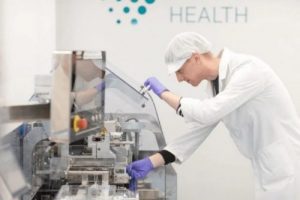Biorenewables centre is recruited into £1bn Net Zero Innovation programme

The York-based Biorenewables Development Centre (BDC) has been drafted in to help decarbonise the UK transport sector.
It is working on two new Hydrogen BECCS (Bioenergy with Carbon Capture and Storage) Innovation Programme projects.
These have been funded by the Net Zero Innovation Portfolio which has been awarded by the Government’s Department for Business, Energy and Industrial Strategy (BEIS).
The BDC, a subsidiary of the University of York, is an open-access research, development and demonstration centre working at the interface between academia and industry to develop, scale-up and commercialise bio-based products and processes.
The first project; Utilisation of Biorefinery Residues for Blue Hydrogen Production will look at the growing use of biofuels produced through fermentation and digesters.
The project will produce hydrogen through gasification of digester sludges and focus on cost effective treatment of bio-refinery waste for use as a gasifier feedstock. The project is led by the University of Hull, and other partners include the BDC, Aston University, Jesmond Engineering and Teesside University.
The second project, H2-Boost, aims to produce biohydrogen for the UK transport sector in an environmentally sustainable and commercially viable manner.
The multi-step process uses organic waste readily available as feedstock which is initially pre-treated to increase biodegradability and hydrogen yields in a subsequent biological process to transform organic compounds into hydrogen gas and other valuable by-products.
Partners will conduct a comprehensive feasibility study to assess the potential of this technology and produce a business case for implementation at full scale. The project is led by the University of Leeds, other partners include the BDC, Greenthread Solutions, NNFCC and Aardvark EM.
After these six month projects are completed, the partners will have the opportunity to apply for further phase two funding.
Joe Ross, director at the BDC, said: “We are pleased to be part of these phase one projects and work with academic and industry partners to explore how low carbon hydrogen technologies can offer potential solutions for decarbonising the UK transport sector and contribute towards the UK’s net-zero goals.”
The Hydrogen BECCS Innovation Programme supports technologies which can produce hydrogen from biogenic feedstocks and be combined with carbon capture.
It forms part of the BEIS £1bn Net Zero Innovation Portfolio, which aims to accelerate the commercialisation of innovative clean energy technologies and processes through the 2020s and 2030s.







